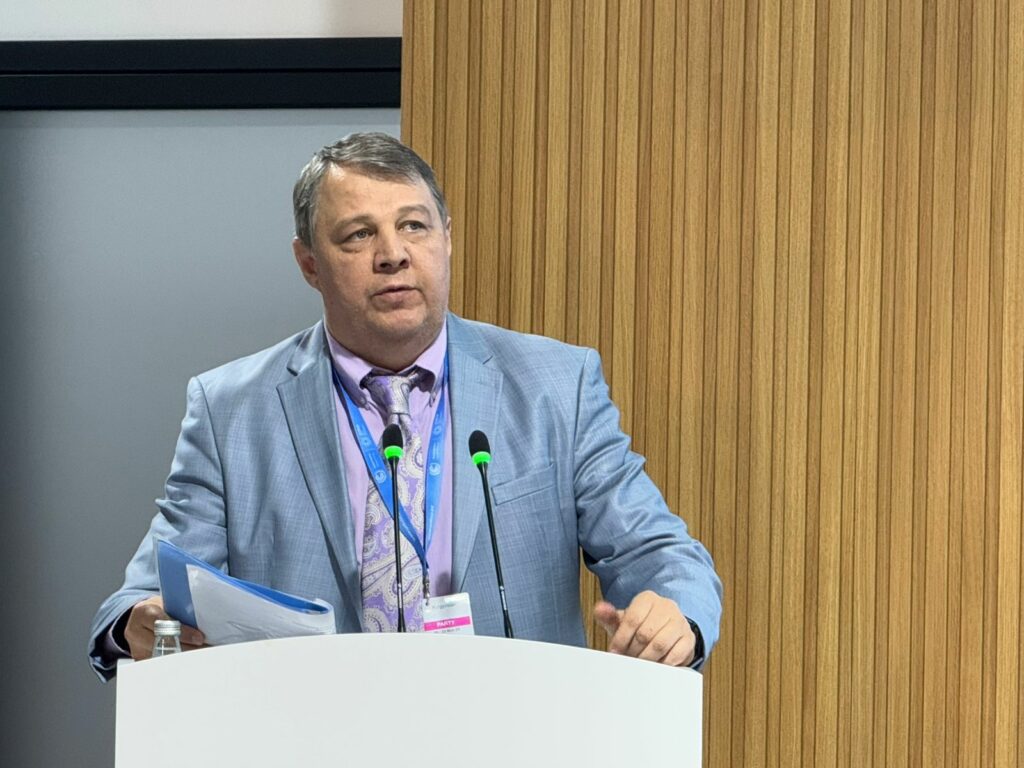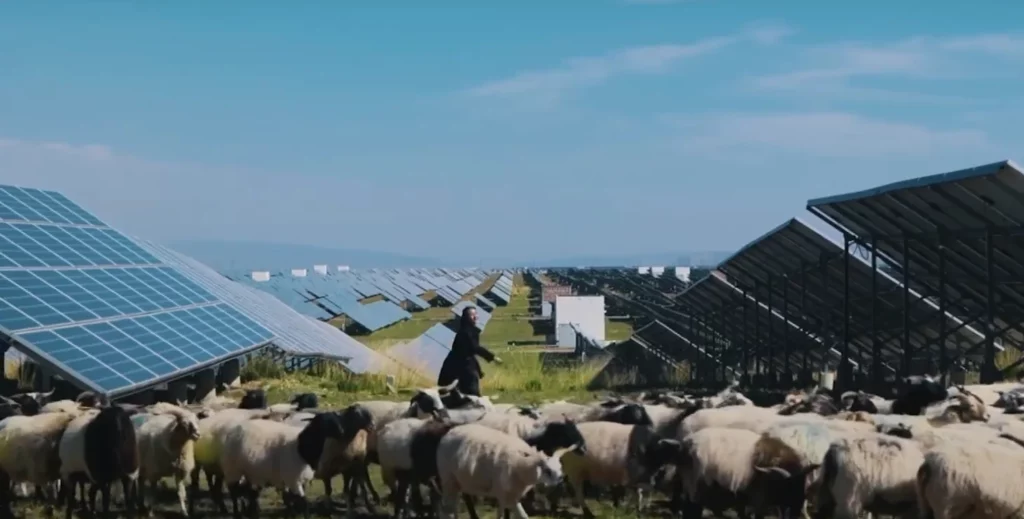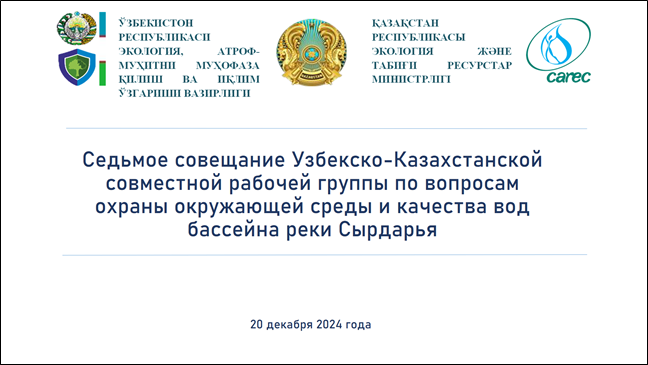Vladimir Grebnev at COP29: The Caspian Sea unites us
The Agency of State Support to NGOs of the Republic of Azerbaijan hosted the event “The Caspian Sea and Sustainable Development: Environmental Protection” at COP29 on 19 November 2024. It aims to foster ecological unity among Caspian littoral states by addressing critical environmental issues facing the Caspian Sea, exploring innovative solutions for sustainable development, and enhancing regional cooperation among civil society. The agenda featured two panel discussions focusing on the current ecosystem challenges and the role of technology in promoting sustainable practices.
As noted by Vladimir Grebnev, Regional Climate Change Specialist of the Regional Environmental Centre for Central Asia (CAREC), climate change processes causing changes in the water level in the Caspian Sea, degradation of ecosystems and the growth of extreme natural phenomena directly affect the million population of this region.

“These challenges require collective, concerted action from us, and not only by government agencies but also by civil society, business and the scientific community. We are all aware that nature has no boundaries. Though the Caspian Sea separates our states, it also unites us,” said Vladimir Grebnev.
Vladimir Grebnev stressed that the Caspian region, as an ecosystem, is an important economic and energy center. In his opinion, applying environmentally sustainable solutions in the economy and energy will serve as an example for other regions and strengthen the Caspian region’s role in the global climate agenda.
“The Caspian Sea is one of the richest inland water bodies on the planet in terms of biological diversity. But climate change and anthropogenic factors threaten its ecosystems. The Caspian Dialogue provides an opportunity to work together to preserve unique species, such as the Caspian seal, and develop mechanisms for the sustainable use of resources,” Vladimir Grebnev is sure.
The CAREC Regional Climate Change Specialist called on the participants to join efforts in shaping the climate-resilient future of the Caspian region.
“Climate and environmental challenges such as desertification, ecosystem destruction or pollution cannot be solved alone. Only collective efforts and exchange of experience make it possible to develop effective adaptation and mitigation strategies,” said Vladimir Grebnev.



